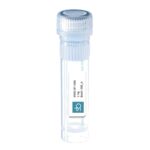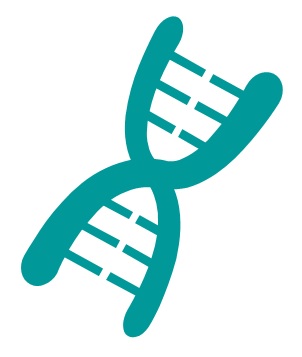MOG (97-108) peptide- Myelin Oligodentrocyte Glycoprotein peptide 97-108,Mouse
MOG 97-108: TCFFRDHSYQEE
MOG (mouse myelin oligodendrocyte glycoprotein – UniProtKB – Q61885) is an integral membrane protein type I that is important in mouse models of demyelinating disease like EAE (Experimental Autoimmune Encephalomyelitis). Demyelination causes the loss or destruction of the protective sheath around nerves. The myelin oligodendrocyte glycoprotein is widely expressed to the external surface of the peripheral lamellae of myelin sheaths of the CNS (Central Nervous System).
MOG 97-108 induces EAE
The peptide MOG (97-108) is a fragment of the myelin oligodendrocyte glycoprotein (MOG). The immunization in the HLA-DR4 transgenic mice by the MOG 97-108 epitope provokes an immune response by the B cell. This process is a marker of the induction of the MHC II antigen presentation pathway. The MOG 97-108 immunization induces an Experimental Autoimmune Encephalomyelitis (EAE) in mice. This HLA-DR4-restricted epitope increases IFN-γ production of T cells and induces also an EAE (Experimental Autoimmune Encephalomyelitis) in mice immunized by this peptide.

 Click here to discover SB-PEPTIDE’s Human MOG peptides pool for T-cells activation
Click here to discover SB-PEPTIDE’s Human MOG peptides pool for T-cells activation
Technical specification
 |
Sequence : TCFFRDHSYQEE – Purity : > 95% |
 |
MW : 1561.63 g / mol (C68H92N18O23S) |
 |
For research use |
 |
Counter-Ion : TFA Salts (see option TFA removal) |
 |
Delivery format : Freeze dried in polypropylene 2mL microtubes |
 |
Other names : Myelin Oligodendrocyte Glycoprotein (97-108) |
 |
Peptide Solubility Guideline |
 |
Bulk peptide quantities available |
Price
| Product catalog | Size | Price € HT | Price $ USD |
| SB140-1MG | 1 mg | 110 | 138 |
| SB140-5MG | 5 mg | 385 | 481 |
References
Front Immunol. 2021 Mar 29;12:657768. doi: 10.3389/fimmu.2021.657768
Emerging Therapeutics for Immune Tolerance: Tolerogenic Vaccines,T cell Therapy,and IL-2 Therapy
Autoimmune diseases affect roughly 5-10% of the total population,with women affected more than men. The standard treatment for autoimmune or autoinflammatory diseases had long been immunosuppressive agents until the advent of immunomodulatory biologic drugs,which aimed at blocking inflammatory mediators,including proinflammatory cytokines. At the frontier of these biologic drugs are TNF-α blockers. These therapies inhibit the proinflammatory action of TNF-α in common autoimmune diseases such as rheumatoid arthritis,psoriasis,ulcerative colitis,and Crohn’s disease. TNF-α blockade quickly became the “standard of care” for these autoimmune diseases due to their effectiveness in controlling disease and decreasing patient’s adverse risk profiles compared to broad-spectrum immunosuppressive agents. However,anti-TNF-α therapies have limitations,including known adverse safety risk,loss of therapeutic efficacy due to drug resistance,and lack of efficacy in numerous autoimmune diseases,including multiple sclerosis. The next wave of truly transformative therapeutics should aspire to provide a cure by selectively suppressing pathogenic autoantigen-specific immune responses while leaving the rest of the immune system intact to control infectious diseases and malignancies. In this review,we will focus on three main areas of active research in immune tolerance. First,tolerogenic vaccines aiming at robust,lasting autoantigen-specific immune tolerance. Second,T cell therapies using Tregs (either polyclonal,antigen-specific,or genetically engineered to express chimeric antigen receptors) to establish active dominant immune tolerance or T cells (engineered to express chimeric antigen receptors) to delete pathogenic immune cells. Third,IL-2 therapies aiming at expanding immunosuppressive regulatory T cells in vivo.
J Immunol. 2001 Dec 15;167(12):7119-25. doi: 10.4049/jimmunol.167.12.7119
T cell epitopes of human myelin oligodendrocyte glycoprotein identified in HLA-DR4 (DRB1*0401) transgenic mice are encephalitogenic and are presented by human B cells
Myelin oligodendrocyte glycoprotein (MOG) is an Ag present in the myelin sheath of the CNS thought to be targeted by the autoimmune T cell response in multiple sclerosis (MS). In this study,we have for the first time characterized the T cell epitopes of human MOG restricted by HLA-DR4 (DRB1*0401),an MHC class II allele associated with MS in a subpopulation of patients. Using MHC binding algorithms,we have predicted MOG peptide binding to HLA-DR4 (DRB1*0401) and subsequently defined the in vivo T cell reactivity to overlapping MOG peptides by testing HLA-DR4 (DRB1*0401) transgenic mice immunized with recombinant human (rh)MOG. The data indicated that MOG peptide 97-108 (core 99-107,FFRDHSYQE) was the immunodominant HLA-DR4-restricted T cell epitope in vivo. This peptide has a high in vitro binding affinity for HLA-DR4 (DRB1*0401) and upon immunization induced severe experimental autoimmune encephalomyelitis in the HLA-DR4 transgenic mice. Interestingly,the same peptide was presented by human B cells expressing HLA-DR4 (DRB1*0401),suggesting a role for the identified MOG epitopes in the pathogenesis of human MS.
